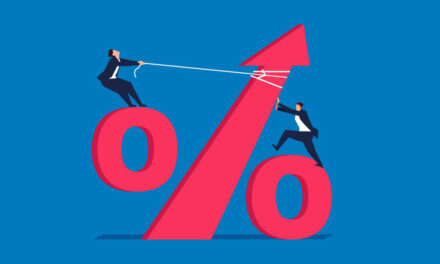Despite rapid and seemingly non-stop interest rate hikes on the part of the US Federal Reserve, inflation remained high at the beginning of this year – but it appears that it is slowly but surely beginning to decline.
January 2023 marked the seventh consecutive month that annual inflation has declined in the United States, slowing to around 6.4% year over year despite a monthly increase of 0.5%. The January figures are slightly lower than the 6.5% seen in December of last year but are still above the 6.2% forecast by experts.
Housing costs were seen as the primary driver for prices in January as these made up almost 50% of the increase. The rising cost of food and fuel also had its part to play.
Currently, the cost of food products is still above the current rate of inflation, as food-at-home prices rose by 11.3% at the start of the year. The cost of eggs, in particular, went up by a staggering 70% year over year.
The core CPI index which does not take food and fuel costs into consideration was up by 0.4%, matching previous monthly gains. Likewise, this has been moderated from 5.7 to 5.6% on an annual basis.
Based on consensus estimates, monthly core growth stands at 0.4% with 5.5% in year-over-year gains.
Despite heavy discounting, however, experts warn that inflation remains hot due to a number of underlying factors.
Still Too Hot to Handle
But why is inflation still at an all-time high despite improving conditions regarding employment and economic growth?
According to KPMG chief economist Diane Swonk, this particular spate of inflation is quite complex, as are the factors that have driven up the cost of food, fuel, and other commodities.
Indeed, the pandemic, geopolitical events such as the Russian invasion of Ukraine, global supply chain challenges, and even climate change have had an adverse impact on the economy.
Bankrate’s chief financial analyst Greg McBride opines that, despite improved employment rates and other developments, common households will continue to feel the worsening pinch of inflation.
Indeed, McBride says that, while many household budgets have been battered by higher costs, it is unlikely that the pressure will ease off anytime soon as it is just as unlikely that inflation will drop back to a manageable 2% within the foreseeable future..















